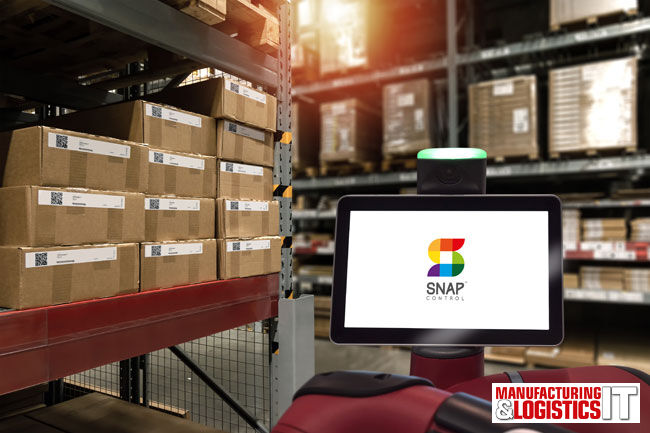Technology innovator Synergy Logistics has been showcased in the elite Gartner Magic Quadrant (MQ) for Warehouse Management Systems (WMS) – for the 12th successive year.
The WMS domain expert reinforces its leading status in the ‘niche’ quadrant (focused on producing tangible functionality improvements) but with strong movement towards ‘visionary’ thanks to its innovative SnapFulfil configurability, robotics orchestration platform SnapControl, and speed-to-value solutions.
Synergy is one of only a handful of independent software vendors worldwide to be selected for the prestigious 2023 WMS MQ. SnapFulfil is one of the pioneering cloud and SaaS-dedicated warehouse management systems, heralded for its industry-leading and cost-effective deployment speed. Apart from having a highly credible and proven WMS solution that quickly flexes to supply chain uncertainty, the business was also measured on foresight and capacity to execute.
Synergy’s Group CEO Rich Pirrotta said: “We view this recognition as testament to our continued ability and determination to deliver superior technology, agile solutions, and value to match our clients’ unique and challenging needs. This gives them rapid ROI and low total cost of ownership (TCO).
“Our strength and differentiation are in the highly competitive SMB market, but as Gartner acknowledges, SnapFulfil has the ability to scale down to high Level 1 warehousing and up to more complex Level 4 operations by improving data visibility and accuracy to extend decision support capabilities for enterprise organizations.”
Another Gartner highlight is Synergy’s new device and technology agnostic multiagent orchestration platform SnapControl, which connects all automation devices and robotic systems within the warehouse from one centralized platform. It’s already been successfully delivered in 2022 in an expanding customer DC, featuring AMRs and automated packaging systems in just weeks, without major software upheavals.
SnapControl uniquely promotes bi-directional MQTT (MQ Telemetry Transport) messaging and conversational decision-making between the WMS and remote warehouse devices. “In other words, SnapControl speaks to the devices and the devices talk back, enabling the most efficient warehouse decisions to be made automatically,” explained Pirrotta.
SnapFulfil differentiators that are listed include remote and self-implementation capabilities, via a solution called SnapBuddy, which offers interactive configuration instruction and real-time training to end users. Such tools also reduce both short-term costs and entry to market risks. SnapFulfil’s robust rules engine equally facilitates elevated levels of non-code adaptability to support customer-specific and vertical-industry-specific requirements.
Additionally specified by the Gartner WMS MQ is SnapFulfil’s pricing strategy, which allows companies to easily flex their number of users based on seasonal demand variations. A no-capital-expenditure, turnkey-managed service option combines software, cloud infrastructure, ongoing support, and implementation services as part of a single and competitive subscription fee.
Gartner is also focused on how companies make the most of partner agreements. This is an area that Synergy has been developing with the implementation of an official partner management program to extend their partner ecosystem which already includes robotic specialists 6 River Systems and HAI Robotics, with more ready to launch in the near term. With an already strong presence in the UK and North America, Synergy recently expanded into the UAE, and has its sights set on further global expansion.
Pirrotta concluded: “We continue to punch well above our weight, enhance WMS data analytics, and improve technical support for integrations, plus we have greatly expanded our partner ecosystem and global reach. With our focus on strong value, Gartner also recognizes our aim of being the provider of choice for the ever-expanding e-commerce sector, as well as the third-party logistics (3PL) companies that retail and D2C increasingly rely on.”


